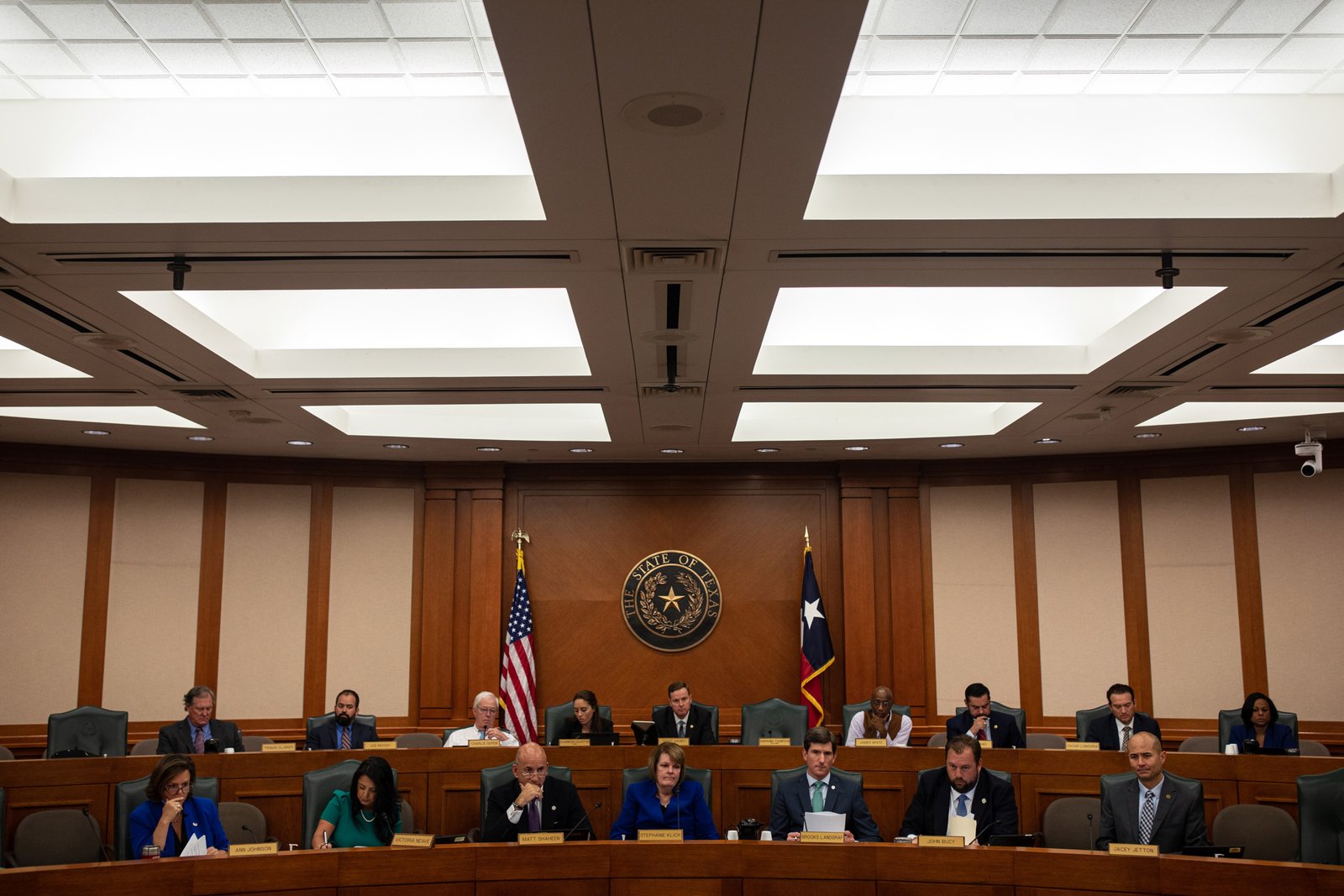Texas Governor Greg Abbott warned on Sunday that Democratic lawmakers who fled the state to break quorum during a special legislative session could be removed from office for abandoning their duties. Abbott cited a 2021 opinion by Attorney General Ken Paxton as justification, asserting that it allows him to declare vacancies and replace absent members.
However, a detailed review of Texas law and the attorney general’s opinion indicates the governor lacks unilateral authority to take such action.
Why It Matters
Abbott’s threat highlights a broader clash over executive power, legislative independence and due process in Texas politics. While Abbott cites Paxton’s 2021 opinion to justify potential removals, the opinion indicates that only courts—not the governor—can determine whether a legislator has abandoned office. If a governor could unilaterally remove legislators for breaking quorum, it would drastically expand executive power and potentially override voters’ choices.

Tamir Kalifa/Getty
What To Know
Who Is Greg Abbott?
Abbott has served as Texas’ governor since January 20, 2015. A former lawyer and Texas Supreme Court Justice (1996-2001), he served as attorney general from 2002 to 2015. A Republican since his state Supreme Court appointment by Governor George W. Bush, Abbott is known for his conservative positions on immigration, gun rights and limiting federal oversight.
Who Is Ken Paxton?
Ken Paxton, a former state legislator, has been Texas’ attorney general since 2015. As the state’s top legal officer, he issues advisory opinions like his 2021 KP-0382 and represents Texas in court. In 2023, Paxton faced an impeachment attempt in the Texas House over allegations of corruption, abuse of office and bribery tied to his relationship with a political donor. The Texas Senate held a trial in September 2023 and acquitted him on all counts, allowing him to remain in office.
Quorum Breaks Explained
A quorum break occurs when enough lawmakers leave a legislative session to prevent official business. Legislative bodies like the Texas House require a minimum number of members present to pass laws—two-thirds in this case. In Texas, a quorum is the minimum number of legislators required for the House (100 of 150 members) or Senate (21 of 31 members) to conduct business. If enough members leave, they can deny a quorum and halt legislative proceedings. The tactic, which is used by Democrats and Republicans, is legal but controversial.
What the Paxton Opinion Says
Attorney General Opinion KP-0382 was issued during a 2021 quorum standoff. It addressed whether lawmakers could break quorum and whether such actions create a vacancy. The opinion concluded:
- A vacancy may occur if an official “abandons” office.
- Determining abandonment is a fact-specific question for a court.
- A quo warranto action (a legal proceeding used to challenge whether a person has the legal right to hold a public office) must be filed by the attorney general or a district attorney for a court to decide if a legislator forfeited office.
The opinion did not rule breaking quorum unconstitutional, nor did it grant the governor power to declare vacancies unilaterally.
Historical Context
Texas governors have used legal and procedural tools to compel lawmakers back to the chamber but have never removed members for breaking quorum.
- 1870: Thirteen Texas senators left the Capitol to block a wartime powers bill, denying a quorum. They were arrested, and the bill later passed, establishing quorum-breaking as a tactic in Texas politics.
- 1979: Twelve Democratic state senators nicknamed the “Killer Bees” hid for four and a half days to block a vote on presidential primary election rules.
- 2003: More than 50 Democrats fled to Oklahoma to delay a Republican-backed redistricting plan. The plan ultimately passed after lawmakers returned.
- 2021: More than 50 Democrats went to Washington to protest voting restrictions. Arrests were authorized to compel attendance, and the bill passed after members returned.
What People Are Saying
Chuck DeVore, chief national initiatives officer at the Texas Public Policy Foundation and a former California lawmaker, told Newsweek on Monday: “The governor has threatened to declare a vacancy, which he can do. This does not require any sort of judicial intervention…under Article IV, Section 10 of the Texas Constitution…the governor can declare vacancies.
“I really think that eventually there will be members that come back…there are members that cannot withstand the financial pain…and potentially criminal action, because if it’s found out that you took money from somebody in exchange for breaking quorum…that’s illegal.
“What happened the last time [2021]…the average Texan simply looks at this and says, you’re not doing your job. And what ends up happening is the public begins to turn against them.”
Brandon Rottinghaus, a political science professor at the University of Houston, told the Texas Tribune: “It’s a messaging move…It’s a last resort for Democrats who have run out of options legislatively and even legally.”
Mark P. Jones, a political science professor at Rice University: “If we’re going to follow our current primary schedule, we do need to have these districts approved by the Legislature before the opening of filing [for the 2026 midterms] in November.”
The Texas House Democratic Caucus, in a four-word statement in response to Abbott’s threats: “Come and take it.”
Illinois Governor JB Pritzker, during a press conference on Sunday: “We’re going to do everything we can to protect every single one of them.”
What Happens Next
Abbott ordered Democratic lawmakers to return when the House reconvenes on August 4. While he has threatened to declare their seats vacant, any attempt would almost certainly lead to a court challenge.
With no precedent for removal in Texas history, the standoff could prolong legislative gridlock, prompt additional special sessions and potentially set new legal precedent on gubernatorial authority (the legal powers and responsibilities granted to a state governor under a state’s constitution and laws) and quorum-breaking tactics.
